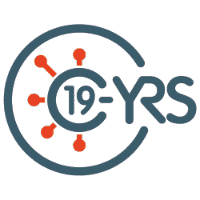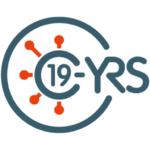- Five projects to share £1.5 million funding to boost occupational health services for small and medium-sized businesses.
- Artificial intelligence and new technology at heart of revolution including expansion of remote services, digital health hubs, and Long Covid support.
- New support comes as inactivity due to long term sickness increases by 735,000 since the pandemic
- Occupational health reforms part of Government’s plan reduce economic inactivity by helping thousands more stay and succeed in work
Five projects will receive a share of this funding to develop new and innovative ways to improve occupational health services which will eventually be scaled-up and made available to small businesses to help them support their employees to stay in work.
One successful company, Kinseed Limited, is developing a revolutionary cloud-based occupational health platform aimed at offering employers’ powerful new tools to help maintain and improve employee health and wellbeing.
Their new service “MediWork” is breaking ground with AI and uses data to monitor individual health trends and identifies early warning signs of ill health. It will tailor suggestions to improve workplace wellbeing, and help clinicians do their job more effectively and quickly than before.
The new technology developed through the Fund will help unlock opportunities to improve people’s work and wellbeing as the government boosts health and employment support to drive down inactivity.
Minister for Employment, Jo Churchill MP, said:
Time off work due to sickness costs British business £100 billion every year. The innovative solutions developed through this funding will benefit businesses as we harness AI and technology to support a healthier and more productive workforce.
Delivering through our Back to Work Plan and Occupational Health Taskforce, we are driving down inactivity and helping people reach their potential both in work and their daily lives.
Pal Bhusate, Chief Executive Officer at Kinseed Limited, added:
We’re very excited to be working with cutting edge technology in AI and Cloud systems to keep people healthy and safe at work - and this fund has been absolutely critical in helping us do precisely that.
Supporting small and medium businesses in these areas is the only way that industries like ours can rapidly adapt to and get value from these incredible developments - and it’s brilliant to see such positive and active support from government to encourage that agility and innovation.
Before the pandemic, inactivity in the UK had fallen by over 850,000 and while it currently remains lower than G7, EU and OECD averages, many people including those from younger generations are out of work due to long term sickness, in large part been driven by mental health conditions like depression and anxiety.
With long-term sickness now the main reason people of working-age give for being economically inactive, occupational health services can help employers provide in work support to manage their employees’ health conditions and reduce the number of those becoming inactive.
However, only 45% of workers in Britain have access to some form of occupational health, with an estimated 1.8 million workers reporting work-related ill health in 2022/23. That’s why the government is working with companies to develop new technology to better understand employee health, provide tailored support and tackle long-term sickness to help people stay and succeed in work.
We’ve introduced reforms to address this through the government’s new WorkWell service and £2.3 billion in extra mental health funding a year in England to ensure people can reach their potential and get the support they need to reap the financial, mental and physical benefits being in work has to offer.
The Occupational Health Innovation Fund and new Occupational Health Taskforce builds on this, and the government’s £2.5bn Back to Work Plan will support over a million people including those with mental health conditions to break down barriers to finding and staying work through the use of NHS Talking Therapies, Individual Placement and Support, Restart and Universal Support programmes.
Minister for Health and Social Care, Helen Whately MP, commented:
Every year many thousands of people take time off work - or leave work altogether - because of ill health. But at the same time, there are millions of people who are working with health conditions, often supported by occupational health services.
We want more people to be able to benefit from occupational health support, particularly people working in smaller businesses or those who are self-employed. That’s why we’re investing in these innovative approaches to occupational health. This sits alongside our plans for WorkWell which will help people access support to stay in work, and our fit note reforms.
A healthy economy depends on a healthy workforce. Making sure people can be healthy and stay in work is crucial for individuals, businesses and our country as a whole.
Another organisation, Armour Labs Limited, is building a digital health hub for SME’s and the self-employed to reduce the cost of access to occupational health services.
They will partner with digital healthcare providers and merge these services into health plans for UK employees which they can access through an online portal and future mobile app to help make Occupational Health support more accessible and efficient than ever.
Aleezay Malik, Chief Executive Officer of Armour Labs Ltd, added:
Armour Labs is building the digital marketplace for employers to procure and deploy Occupational Health services that cater to their workforce’s diverse and individual needs.
Through the support of this Fund, we are now in the process of testing and rolling out our solution in the market which we expect will make Occupational Health not only more accessible and affordable for businesses, but also reduce ill health related absenteeism by 30%.
In February, the government launched a new Occupational Health Taskforce, led by Dame Carol Black, to improve employer awareness of the benefits of Occupational Health in the workplace.
The Taskforce is developing an occupational health framework to help businesses prevent sickness-related job loss and support employees returning to work after illness. The voluntary framework is expected to be published this summer.
Additional Information
- Recognising the need for transformative changes in the OH market, the DWP/DHSC Joint Work and Health Directorate launched the dedicated ‘Fund to Stimulate Innovation in Occupational Health’ in January 2023 to stimulate innovation and improve service delivery models through the effective use of technology.
- Phase One provided £1 million between ten organisations to develop new technology to improve health outcomes for employees of small-medium enterprises (SMEs).
- After the ten providers from Phase One presented the tools they had developed. These were scored, and five providers have passed to Phase Two where another £1.5m in funding is being provided.
- Wellics Ltd, Kinseed Limited, Elaros 24/7 Limited, Latus Health Ltd and Armour Labs Ltd are all participating in the latest stage of the Innovation Fund.
- The Occupational Health Taskforce will produce a voluntary occupational health framework for businesses - which will include setting out minimum levels of occupational health needed to stop sickness-related job losses and help businesses better support those returning to work after a period of ill-health.




